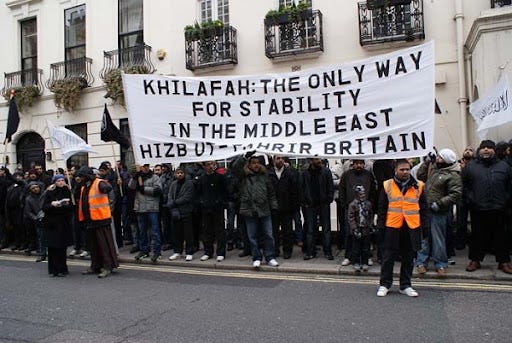Denial still flows through Londonistan
Finally banning Hizb ut Tahrir is a sop when attitudes remain so blinkered
At long last, the British government is to proscribe the Islamist group Hizb ut Tahrir under anti-terrorism laws.
This jihadi group was founded in Jerusalem in 1953 with the aim of replacing Muslim leaders viewed as not Muslim enough and eventually establishing a caliphate with world-wide implementation of Islamic sharia law.
The group has been banned in numerous countries, including all Arab states except Lebanon, Yemen and the UAE. There have been calls to ban it in the UK for decades. It has played in particular an outsize role by radicalising educated and intelligent young British Muslims searching for a meaning to their lives.
The government has finally acted because of the part Hizb ut Tahrir has played in the appalling demonstrations and incitement against Israel since the October 7 Hamas pogrom. The UK branch openly celebrated the atrocities and chanted “Jihad! Jihad!” on the streets of London.
The ban, however, is but an inadequate gesture. At least four groups with links to Hamas are reportedly behind these anti-Israel hate-fests. Some of their principal actors are still freely operating in Britain. It was only in November that the government banned Hamas altogether, having previously banned only its military wing in 2001. And ministers are still refusing to proscribe the Iranian Revolutionary Guard Corps, the main instrument of Iranian global terrorism.
This reluctance is all of a piece with the British government’s attitude towards Islamist extremism ever since 9/11. Ministers and officials have refused to acknowledge Islamist extremism as a jihad or Islamic holy war, because they have refused to accept that its roots lie in an interpretation of Islam that is mainstream and dominant in the Islamic world.
Keep reading with a 7-day free trial
Subscribe to Melanie Phillips to keep reading this post and get 7 days of free access to the full post archives.




